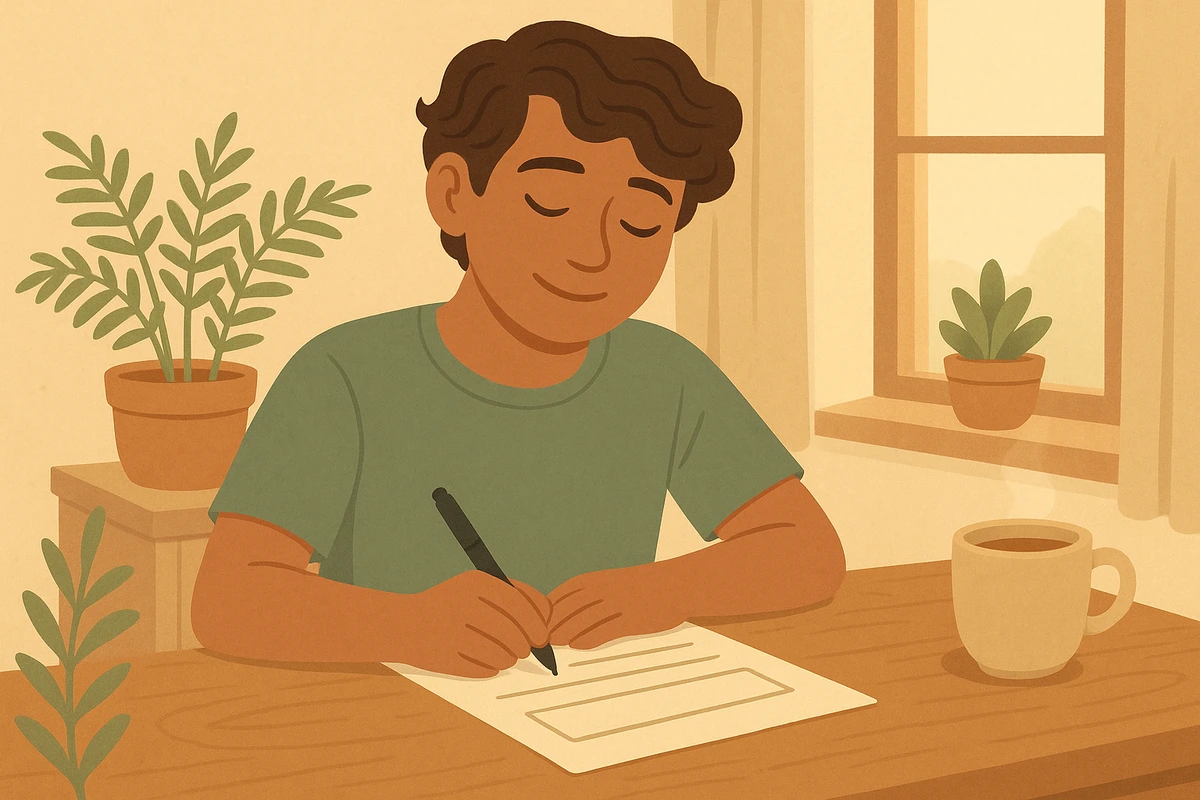Creating a "What Helps Me" worksheet involves making a personalized reference that clearly identifies activities, strategies, and resources proven effective in managing stress, anxiety, depression, and low moods. This self-reflective tool takes 8-12 minutes to complete during calm moments.

When difficult emotions hit, your mind often goes blank and you forget what usually helps you feel better. You might know that certain activities or people make you feel calmer, but in the moment of distress, those helpful strategies seem to disappear from memory. This leaves you feeling helpless and unsure how to cope.
A "What Helps Me" worksheet solves this problem by creating a personalized toolkit you can access anytime. This coping preparation method helps you document what works for you specifically, making it easier to remember and use effective strategies when you need them most.
"What Helps Me" worksheets operate through several connected psychological mechanisms that fundamentally improve emotional regulation and crisis management. The core principle involves what behavioral researchers call "coping preparation," which is the process of identifying and organizing effective strategies before they're needed during emotional distress.
The technique leverages what psychologists term "implementation intentions," which are if-then plans that specify when and how to use particular coping strategies. Having pre-planned responses ready makes it more likely you'll actually use helpful strategies during emotional crises.
One fundamental mechanism involves what researchers call "cognitive offloading," which is the process of storing important information externally rather than relying on memory alone. Studies show that external memory aids significantly improve strategy use during high-stress situations when internal memory becomes unreliable.
The practice works through what cognitive scientists call "self-efficacy building," which involves recognizing your own capacity to manage difficult situations effectively. Documenting past successes reinforces confidence in your ability to cope with future challenges.
Worksheet creation builds what researchers term "emotional self-awareness," which is the ability to recognize your personal patterns, triggers, and effective responses. Clinical research demonstrates that emotional self-awareness correlates strongly with better mental health outcomes and improved stress management.
The framework addresses what emotion regulation specialists call "strategy selection," which is the ability to choose appropriate coping responses for specific situations. Having documented options makes strategy selection faster and more effective during emotional distress.
From a brain science perspective, creating and reviewing coping strategies may strengthen neural pathways associated with emotional regulation by repeatedly activating the same cognitive networks through practice and rehearsal.
Additionally, having accessible coping resources reduces what psychologists call "decision fatigue," which occurs when emotional distress overwhelms the mental energy needed to make good choices about how to respond to difficult situations.
"I can't remember what has helped me in the past" - This is common, especially if you're currently experiencing depression or high stress. Start by thinking about any moment when you felt even slightly better and work backward to identify what contributed to that improvement.
"My strategies don't seem to work when I try to use them" - Some strategies may need modification or might work better in combination with others. Consider whether you need more practice during calm periods or if timing and context affect effectiveness.
"I forget to look at my worksheet when I'm upset" - Place reminders in locations where you'll see them during distress, set phone alerts, or ask trusted people to remind you to check your coping strategies.
"My worksheet feels overwhelming when I'm in crisis" - Create a simplified version with only your top 3-5 most effective strategies for quick scanning, while keeping the detailed version for less intense moments.
"I don't think I have any effective coping strategies" - Everyone has some coping methods, even if they seem small. Consider basic activities like taking a shower, calling someone, listening to music, or going outside as starting points.
"My strategies work sometimes but not others" - This is normal - coping strategies aren't 100% effective in all situations. Focus on building a variety of options and matching strategies to specific situations and intensity levels.